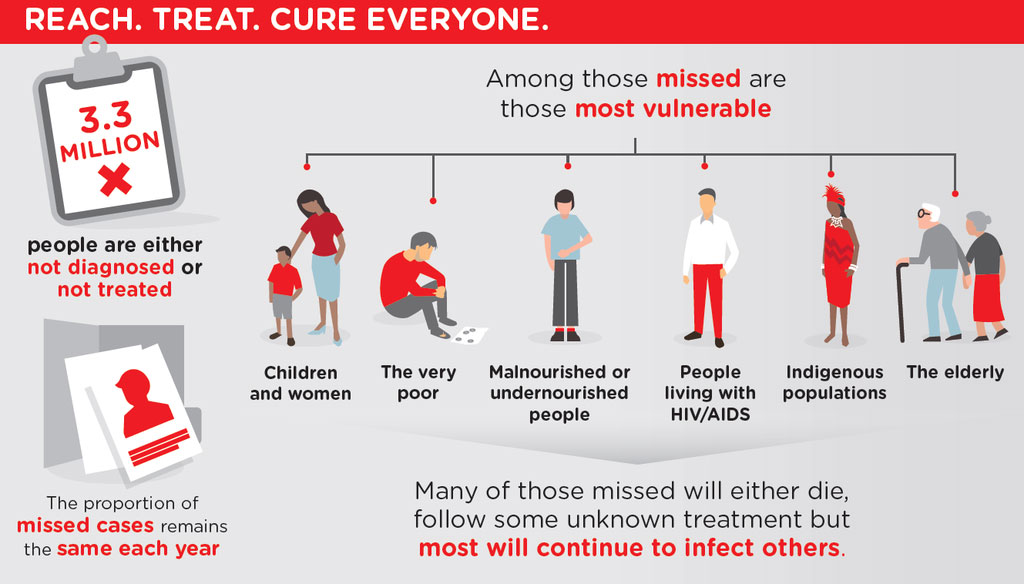UN chief urges governments intensify efforts to end tuberculosis by 2035
With some 37 million lives saved between 2000 and 2013 through the diagnosis and treatment of tuberculosis, it is possible to end the epidemic by 2035, Secretary-General Ban Ki-moon said on World Tuberculosis Day, urging leaders to recommit to ending one of humanity's top killers.
“Victory is not guaranteed,” Mr. Ban said in his message for the Day, observed each year on 24 March.
“I urge Governments, communities affected by tuberculosis and health workers around the world to intensify their efforts in line with the ambitious strategy established by the World Health Assembly in 2014 to end the global epidemic within two decades,” he stated.
Tuberculosis, or TB, is one of the world's top infectious killers. Approximately 9 million people fell ill from it in 2013, and 1.5 million died. TB's impact is felt acutely by the most vulnerable populations, including those struggling with poverty and poor health systems. For women aged 15 to 44, tuberculosis is one of the top five killers. For children, prisoners, migrants and those living with HIV, TB remains the most common form of illness and the leading cause of death.
Last May, governments agreed on a new 20-year (2016-2035) strategy to end the global tuberculosis epidemic. To that end, the UN World Health Organization (WHO) is calling for new action in the global fight against the scourge. Its 'End TB' strategy outlines clear actions and targets that provide a pathway to a world free of tuberculosis deaths and suffering. The plan also links to the wider poverty eradication, social protection and universal health coverage agenda.

Source: Stop TB Partnership
“While achievement by 2015 of one of the key health-focused Millennium Development Goals, namely the reversal of the spread of tuberculosis, is significant, World Tuberculosis Day reminds governments and communities that this is no time for complacency. Efforts must begin now to ensure the effective global roll-out of the 'End TB' strategy and to stimulate the research that will underpin its success,” Mr. Ban said.
'End TB' sets targets and outlines actions for governments and partners to provide patient-centred care, pursue policies and systems that enable prevention and care, and drive research and innovations needed to end the epidemic and eliminate tuberculosis.
WHO is also calling on governments, affected communities, civil society organizations and health-care providers to join the drive to roll out this strategy and to reach, treat and cure all those who are ill today.
“With patient-centred care at the heart, this dynamic action plan will drive forward the critical advances in research and innovation that are needed to combat tuberculosis, including the worrying surge in its multi-drug-resistant and extensively drug-resistant forms,” Mr. Ban emphasized.

